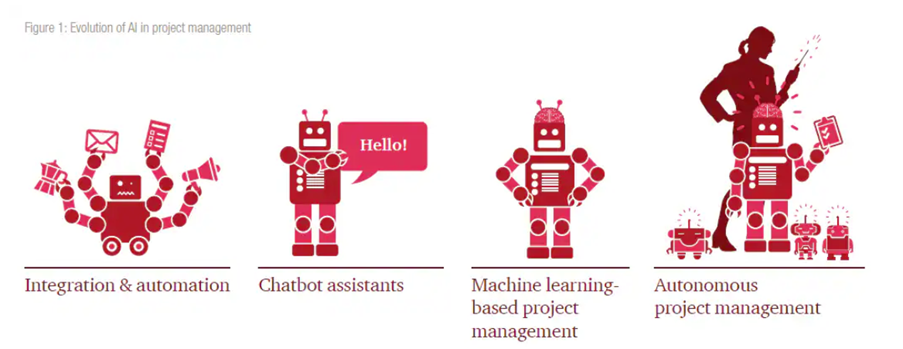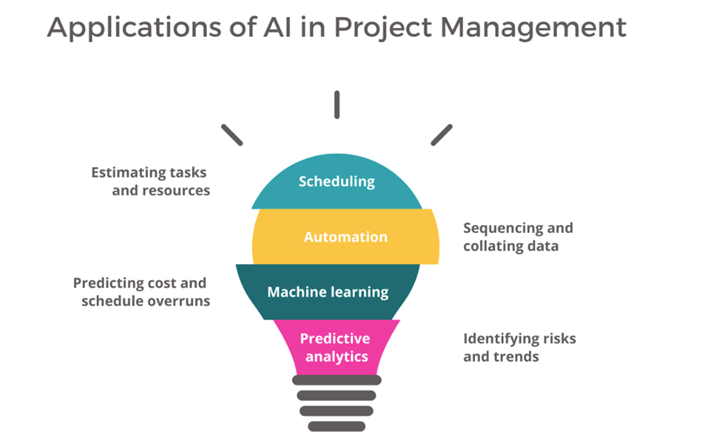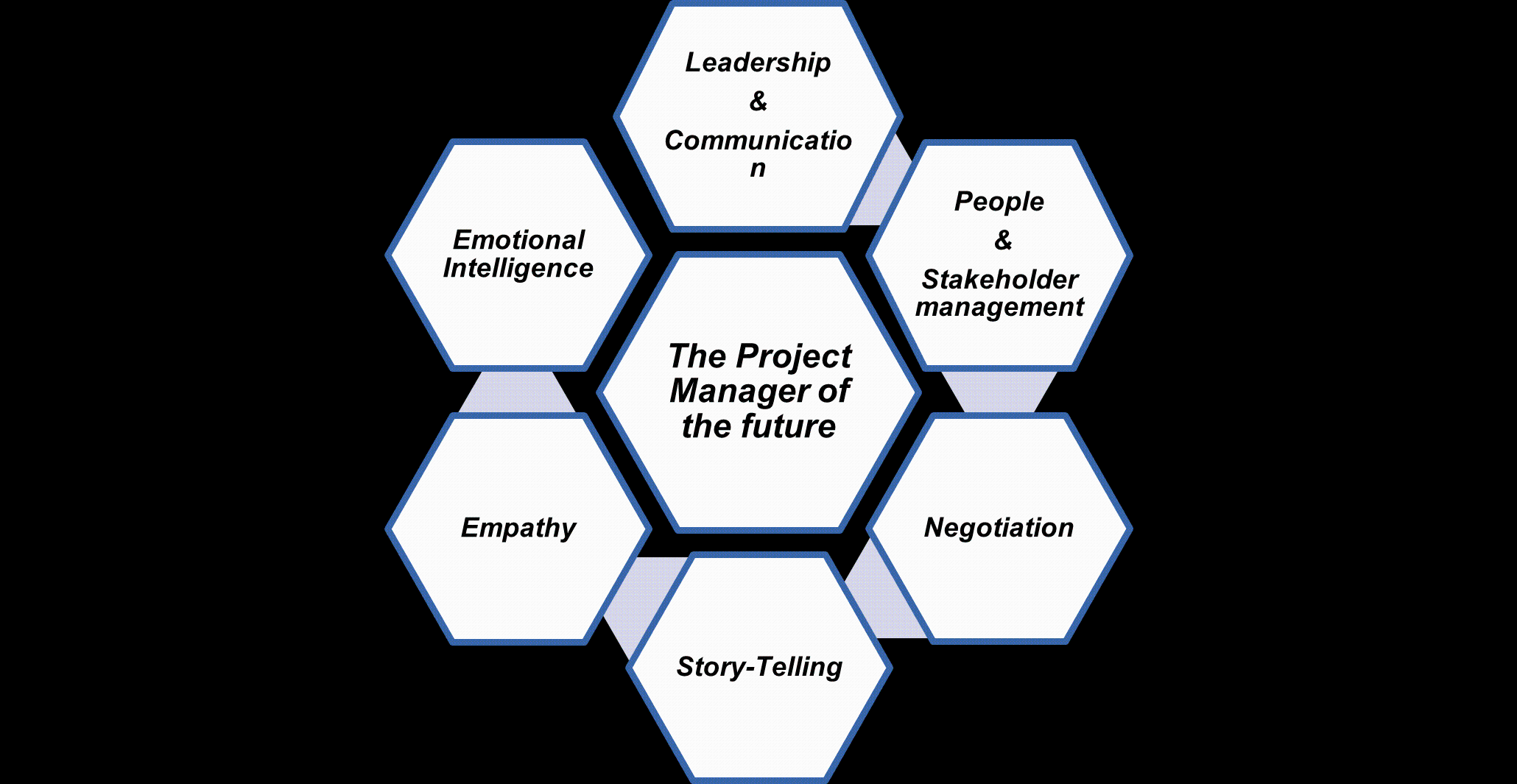October 03 2023 at 11:30AM
PM Skill Builder: Artificial Intelligence: A game changer for Project Managers
The changing dynamics in the Business environment in the last couple of years has witnessed a paradigm shift in project management & PM skills.
According to the World Economic Forum's (WEF) Future of Jobs Report 2020, 50% of the global workforce will require reskilling by 2025. While conventional PMs focused more on predictive strategies to control & execute the different phases of the project as in the Waterfall model, the skills required by Agile/lean managers are focused on managing priority-based tasks in 'Sprints.'
The need to embrace the evolving work trends and modern technological breakthroughs has mandated Business leaders to focus on digital literacy, and it is exactly where digital tools & informed decisions have started to play a pivotal role.
According to research & statistics, approximately $48 trillion are invested in projects annually, of which only 35% are successful. This is slated to the low level of maturity of technologies available for managing them. Gartner’s research predicts that by 2030, 80% of project management tasks will be run by AI, powered by big data, machine learning (ML), and natural language processing, supported by the reliable prediction that 80% of project management work will be eliminated by 2030.

Use Cases & Applications of AI
Integration & Automation of AI
- Interaction between MS Project Online and Wunderlist for task creation and scheduling
- Using online templates & workflows, e.g., in Slack or MS SharePoint, to reduce time and enhance data quality.
- Sending alerts when potential budgeting or scheduling issues are identified for the project.
- Developers with superpowers using Gen AI models like ChatGPT across the Dev lifecycle (for example, to write user stories for PI planning, create test cases, generate sample data for testing, and write & deploy code)
Chatbot Assistants
- ai is an AI bot for Slack that processes conversations within Slack and recognizes tasks and assignments on this basis.
- ai sends team members reminders, tracks their performance, and enables the project manager to recognize top contributors based on measurables.
- Intelligent assistants can summarize conversations, manage calendars, define actions, and link to agile/PM/change tools, making life easier for PMs.
Machine learning-based Project management
- Altering scheduling views according to user permissions and preferences
- Using social tagging to identify and connect users based on their posted comments and to identify the best team for a task.
- Machine learning-based project analytics tool predicts the expected net promoter score (NPS), client satisfaction, and write-off for internal projects.
Autonomous Project management
- Models like MidJourney stable diffusion provide good first drafts for creative content and will enable people to communicate their ideas better.
- Possibility of dedicated areas in small, non-complex projects with dedicated areas where autonomous project management could serve as an extension of machine learning-based project management in the future.
Applications of AI in Project Management
Data Analytics and automation startups are now helping organizations streamline and optimize the project management office (PMO) role. The most famous case is President Emmanuel Macron's use of the latest technology to maintain up-to-date information about every French public-sector project. These new intelligent tools will radically transform the way PMOs operate and perform with:
- Better monitoring of project progress
- The capability to anticipate potential problems and to address some simple ones automatically.
- Automated preparation and distribution of project reports and gathering of feedback
- Greater sophistication in selecting the best project management methodology for each project
- Compliance monitoring for processes and policies
- Automation, via virtual assistants, of support functions such as status updates, risk assessment, and stakeholder analysis

AI-powered Project Management Tools
The top 5 AI-powered Project management tools are as below:
|
Software Name |
User-friendliness |
|
Trello |
User-friendly |
|
Asana |
Steep learning curve |
|
Monday.com |
User-friendly with customizable workflows |
|
Zoho Projects |
The steep learning curve for some users |
|
Wrike |
Suitable for large projects, may require more training |
Project Manager of the Future
It is imperative to harness skill building in the right direction if PMs need to embrace the new age technologies. The future Project Manager needs to be equipped with skills as depicted below.

Pros & Cons of AI Application in Project Management
Organizations and project leaders that are most prepared for this moment of disruption will reap the most rewards. 6 critical aspects of project management that will be affected are as follows:
- Improved Project Planning, better selection & prioritization
- Support for the Project management office with improved communication & collaboration
- Improved Risk Management
- Virtual Project assistants aid with better decision-making.
- Advanced Testing systems and software
- A new role for the Project Manager
There are obstacles to be overcome before we reach this technological utopia.
- Integrating AI with existing systems
- Addressing Ethical considerations & balancing automation with human involvement
- Addressing Cost considerations & ensuring data privacy & security
- Overcoming Resistance to Change & ensuring adequate Training/support.
- Overcoming technical limitations & managing Expectations
Conclusion
The main factor driving the speed of change is generative AI's natural language capabilities, which accelerate technical automation potential. The adoption is likely to be faster in developed countries, and thus, the economic feasibility of adopting automation occurs earlier.
The capabilities of generative AI could automate a broader range of work activities, potentially increasing human productivity and offsetting the impact of aging on workforce growth.
According to McKinsey research & prediction, automation enabled by all AI technologies could increase global productivity by 0.2-3.3% from 2023 to 2040.
In a nutshell, technology is very important, yet we still need people to make the right choices. The future of these new-age technologies will continue to abide by the principle of ‘human-led, tech-powered’ where new technology & human capabilities will be complementary to each other.
We need them both to make progress.



